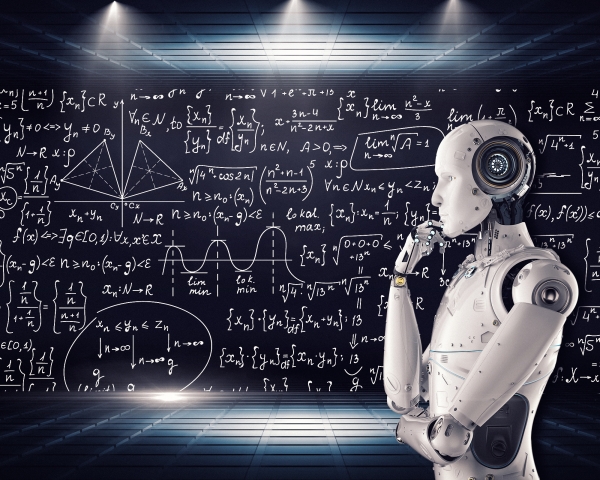AI to replace 5% full-time tech roles annually in five years: Experts
Historically, whenever a ground-breaking new technology is introduced into any sector, it only leads to a lot more new work, ServiceNow CTO Pat Casey told in a
- by B2B Desk 2023-08-18 10:02:54
However, while entry-level jobs are replaced with AI-based automation solutions, tech experts expect to create a higher level of jobs that involve less support roles and more strategic and decision-making roles. Roles in AI ethics and sustainability practices will also come in demand.
Executives at major automation companies like ServiceNow and UiPath see this change in job profiles evolving over the years as companies themselves figure out their AI strategy.
Historically, whenever a ground-breaking new technology is introduced into any sector, it only leads to a lot more new work, ServiceNow CTO Pat Casey told in an interaction in July.
“If you look at the larger technology ecosystem, there is always a dearth of engineering talent. So if certain jobs are automated, it doesn't mean that people will be out of work, just that they will be working a higher value-added job elsewhere,” Casey said.
According to a June study by McKinsey Global Institute study titled Generative Artificial Intelligence and the Future of Work in America, an estimated 12 million occupational transitions may be required in the United States alone by 2030. The greatest impact on productivity will be in the areas of marketing and sales. It will also have a significant impact on functions such as customer operations, product development, and software development.
Outsourcing expert Parikh Jain estimates that around 5% of FTE roles annually mature into newer roles as they are replaced by AI tools.
“It's not going to be a massive change overnight. Support roles that don't require a lot of decision-making capabilities where such changes will happen and progress has already been made for years,” Jain said. He added that there could be some short-term impact on certain low-level jobs before companies fully assess the efficiency of such tools, but the effect will be small in the long term.

Rob Enslin, co-CEO of Robotic Process Automation Major added that one of the chief problems that customers face is helping them identify where they can reduce inefficiencies.
“We see some interesting use cases where citizen developers are able to create solutions for healthcare use cases in Denmark, and this is a great example of how AI can enable more non-technical talent to automate necessary but critical tasks for their business,” Enslin said, adding that use cases like collecting basic data and payment automation are being addressed by such developers.
Kunal Purohit, chief digital officer at Tech Mahindra, told that depending on specific use cases, companies could see up to 35-45% efficiencies through the use of automation and AI tools. “So, the conversation with customers is about how you can bring efficiency improvement into a particular use case rather than FTE savings. We see the impact on work that is quantitative in nature rather than qualitative, as FTE requirements will shift,” said Purohit.
Enterprises have had automation technology in place such as software development/coding, testing, deployment, etc. For many years, said Hansa Iyengar, senior principal analyst at Omdia.
“Though there will be some impact, it is more likely that widespread adoption of AI is likely to create new types of jobs (prompt engineer, for example) that will be a higher value add than standard support roles,” said Iyengar.
DD Mishra, senior analyst at Gartner, said that as they start to replace FTEs, demand will shift to newer capabilities such as data science, AI/ML, automation, analytics, and cybersecurity, which will continue to see a supply-demand gap.
“The requirements for sustainability consulting will see further growth and overall consulting services will remain in demand,” Mishra said, adding that these are part of the ongoing disruption experienced in IT services for decades.
"What will be new and disruptive is going to be an autonomous business that will be dominated by autonomous operations, augmented management, smart products, and machine customers and will lead to an emerging programmable economy," he added.
An autonomous business is a business style partly governed and mostly run by self-learning software agents, which provides intelligent products and services to mainstream markets for machine customers, operating in a programmable economy. The era between 2025-2040 will be dominated by autonomous businesses, and we will soon start to feel their impact. Unfortunately, that will come as a surprise to many organizations.
Sandeep Kalra, CEO of Persistent Systems, expects more AI tools to be used to empower employees rather than replace opportunities. “There will be a demand for a new set of skills, which can be managed through skill enhancement programs, to help employees effectively use AI tools to increase productivity,” said Kalra. He added that boosting developer productivity will be a key task for clients going forward.
Also Read: InMobi acquires consent management platform Quantcast Choice
POPULAR POSTS
The Agentic Revolution: Why Salesforce Is Betting Its Future on AI Agents
by Shan, 2025-11-05 10:29:23
OpenAI Offers ChatGPT Go Free in India: What’s Behind This Big AI Giveaway?
by Shan, 2025-10-28 12:19:11
Zoho Products: Complete List, Launch Years, and What Each One Does
by Shan, 2025-10-13 12:11:43
Arattai vs WhatsApp: Which Messaging App Should You Choose in 2025?
by Shan, 2025-10-10 11:55:06
Top Buy Now Pay Later (BNPL) Apps for Easy Shopping in 2025
by Shan, 2025-09-22 10:56:23
iPhone 17 Sale in India Begins: Full Price List, Launch Offers and Store Availability
by Shan, 2025-09-19 12:00:45
Apple September 2025 Event Recap: iPhone 17, iPhone Air, Apple Watch Series 11, and India Pricing Revealed
by Shan, 2025-09-10 09:55:45
RECENTLY PUBLISHED

Loan EMIs to Drop as RBI Slashes Repo Rate - Full MPC December 2025 Highlights
- by Shan, 2025-12-05 11:49:44

Pine Labs IPO 2025: Listing Date, Grey Market Premium, and Expert Outlook
- by Shan, 2025-11-05 09:57:07

Top 10 Insurance Companies in India 2026: Life, Health, and General Insurance Leaders Explained
- by Shan, 2025-10-30 10:06:42

Best Silver Investment Platforms for 2025: From CFDs to Digital Vaults Explained
- by Shan, 2025-10-23 12:22:46

Zoho Mail vs Gmail (2025): Which Email Platform Is Best for Businesses, Startups, and Students?
- by Shan, 2025-10-09 12:17:26

PM Modi Launches GST Bachat Utsav: Lower Taxes, More Savings for Every Indian Household
- by Shan, 2025-09-24 12:20:59




 Subscribe now
Subscribe now 